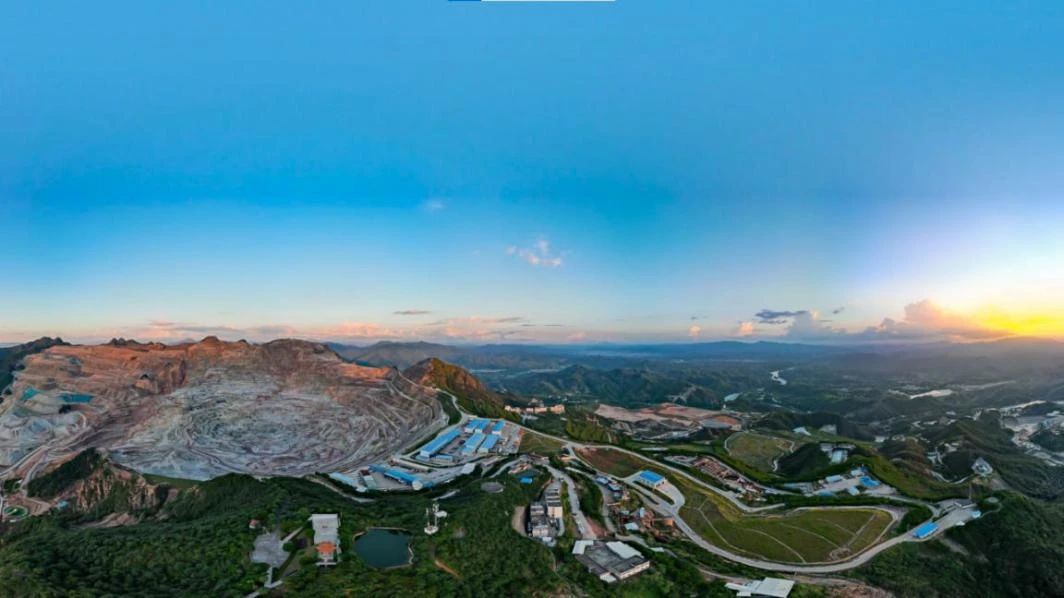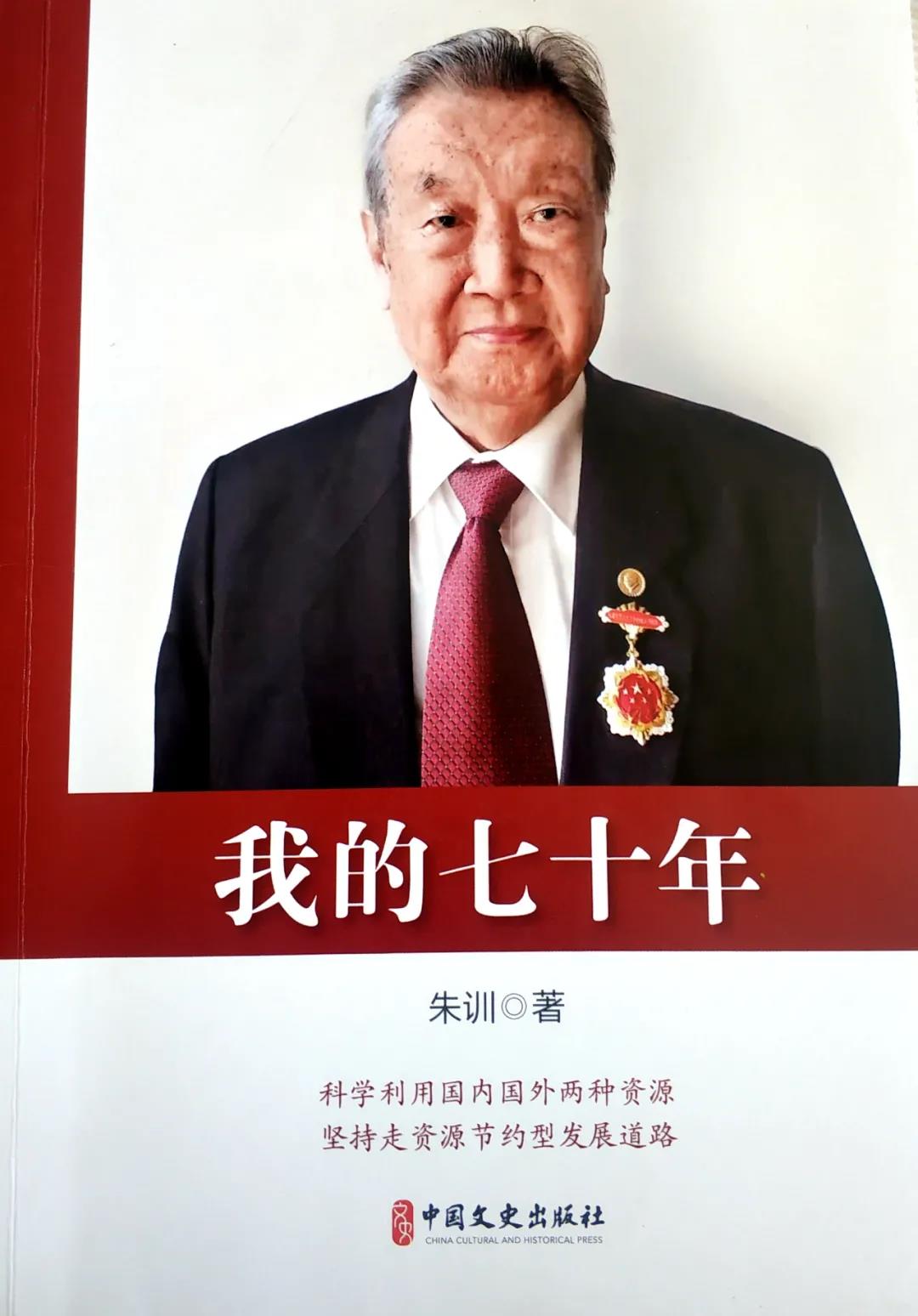
9月4日,2020年
1.了解“勘探”
提高地质调查研究的水平是基础

1952年,朱勋受中国人民大学选派到苏联诺沃切尔卡斯克工业大学地质勘查系,研究金属和非金属矿产。1955年,他转入乌克兰第聂巴的彼得罗夫斯克矿业学院。在顿巴斯、高加索、阿尔泰地区实习和研究,并获得硕士学位和工程师职称。1957年7月回国后,朱勋被派到赣东北地质队从事技术工作。我之所以去赣东北地质队,是因为那里发现了超基性岩,国家急需镍资源。从那以后,“国家急需”这四个字就成了朱勋身体里地质“基因”的稳定因素。
在江西东北部的工作期间,通过地质调查和研究,朱勋及其同事编制了一套江西东北地区地质和矿产资源地图,为江西东北部署地质勘探工作提供了一个基础。多公里的深层断裂带倾斜位于江西东北部的中部,它被命名为“东北江西深层断层区”。据信,这种深刻的断层区及其侧面断层具有矿石引导和矿石存储的作用。后来,这一结论是由地园大型铌钽矿,燃气铅锌矿,东乡铜矿和金山大型金矿的结论。
朱勋调入江西省地质局,任地矿处副处长、副总工程师。1964年组织东乡铜矿战役。作为这次战斗的总工程师,朱勋提出“要指向水面,指向水面”。公司的工作方针和外围勘查的发展,永平地区具有发现新矿产的潜力是重点研究对象。朱勋推断,暴露在表面的铁矿石原来不是铁矿石,而是一种错觉。铁矿是由含铜硫化物氧化而成,地下深部可能存在铜矿。结果,在第一个钻孔中发现了40米厚的铜矿体。后来永平铜矿成为江西铜业基地的重要组成部分。朱迅无疑成功地主持了德兴铜矿的勘探战役。后来,德兴铜矿成为中国最大的铜矿和最大的伴生金矿。 It was a typical example of combining production with scientific research and production.
在江西期间,朱勋先后发表了《江西上饶特殊地区地质构造基本特征、成矿规律及找矿方向》、《赣东北老红岩系列及其找矿意义》、《东乡风岭铁矿地质构造基本特征》、《江西上饶特殊地区地质构造基本特征、成矿规律及找矿方向》、《赣东北老红岩系列及其找矿意义》、《东乡风岭铁矿地质构造基本特征》、《赣东北深断裂带及其在地质找矿中的意义》、《赣东北震旦系地层》等论文,充分揭示了找矿与提高地质调查研究程度的辩证关系,调查研究程度是找矿的基础和基础。
2. Correctly treat geological work procedures
In March 1966, Zhu Xun published "Opinions on Several Issues of Geological Work Procedures" based on the practice of prospecting and exploration battles. He believed that the geological work procedures are a reflection of the gradual deepening of people's understanding of objective geological bodies. In geological work, the reason why certain procedures must be followed is to organize various geological work in a step-by-step and procedural manner, improve self-consciousness, and avoid blindness. We must use Mao Zedong’s philosophy as a guide, advocate materialist dialectics, oppose dogmatism and metaphysics, adhere to a scientific attitude of seeking truth from facts, and analyze specific situations. Zhu Xun proposed a reasonable division of geological work phases, correct treatment of geological work phases, correct handling of the relationship between area survey and census exploration, correct treatment of the principle of from the outside to the inside, the principle of from the shallow to the deep, and the correct treatment from the density to the density The principle of correct treatment of the principle of near and far, and the principle of design first and construction later. These are common problems in the geological survey and prospecting and exploration. The principles for handling these problems proposed by Zhu Xun have long been integrated into the practice of geological exploration.
3. Act according to objective geological laws
In April 1979, Zhu Xun published "According to Objective Geological Laws, You Can Move Forward" in "Jiangxi Daily" based on Jiangxi prospecting practice. He believes that the number of mines in a province or a region is not dependent on people's will, but is determined by objective geological conditions. The formation, distribution and preservation of various minerals in the earth's crust are related to various geological conditions. According to Jiangxi's metallogenic geological conditions, the prospecting policy of focusing on copper and tungsten and coordinating various mineral surveys and explorations is more in line with the actual mineral resources of Jiangxi. In the 1950s, mid-1960s, and after 1973, geological work was generally deployed in accordance with this policy, and a number of large-scale copper and tungsten ore deposits were successfully discovered and explored, and achievements were made in the general survey and exploration of iron, coal, and phosphorus minerals. Certain achievement. Jiangxi copper mines and tungsten mines have good metallogenic geological conditions, which are gradually realized after repeated practice.
4. Starting from the known, carry out ore prospecting
1982年,基于江西的25年的地质勘探实践,朱迅将地质工人的感性知识置于桌面上的第一次,并与实际情况结合进行了严肃的分析。它已经上升到指导思想和哲学的勘探。他认为,对矿石的勘探仍然有效,矿石勘探的方式不断扩大:一个是评估已知的矿石,检查各种异常或根据其他线索发现矿床;另一种是在已知的矿化前景(区域)或已知的工业价值沉积中找到矿物沉积,以查找相同类型的新矿床;第三是通过追踪旧采矿区的已知矿石的空间延伸来扩大资源前景;第四是在已知存款范围内找到新的存款。矿体,新的矿石地平线和新型矿化;第五届是通过综合评价和综合探索共生矿物质和相关的有益部件在已知存款范围内的综合评价和综合探讨来扩大资源前景。
Zhu Xun believes that it is reasonable to conduct mineral prospecting and analyze the mineralization geology theory. Because of a certain comprehensive geological process that forms a certain mineral deposit, the appearance in a certain area of the crust usually has a certain breadth and depth in space. This is the reason why similar deposits appear in groups and distributed in zoning in a region. From a philosophical point of view, the practice of ore prospecting is also based. Because a correct understanding often needs to go through from material to spirit, from spirit to material, that is, from practice to knowledge, from recognition to practice, so many iterations can be completed. From the perspective of geological and economic effects, the implementation of ore prospecting is also fast, better and more economical. At the same time, Zhu Xun proposed that several issues should be paid attention to in ore prospecting: one is to give full play to the guiding role of geological theory in ore prospecting; second, to use advanced technical methods and prospecting methods in ore prospecting; Correctly handle the relationship between mineral prospecting and prospecting in new areas.
2. A milestone in the understanding of prospecting-"An Introduction to Prospecting Philosophy"
In 1982, Zhu Xun went to the Ministry of Geology and Mines to lead the geological prospecting work. He aimed at the needs of economic and social development, served the national development strategy, continuously analyzed the resource situation, and actively deployed prospecting and prospecting tasks. In this process, Zhu Xun used dialectical materialism to guide the work of geology and minerals, and was invited to give a systematic lecture on "Several Philosophical Issues in Mineral Exploration Work" in the postgraduate class of Changchun Institute of Geology. On this basis, he completed it in 1992 Written and published "An Introduction to Mineral Prospecting Philosophy".
1. Mineral prospecting philosophy can also be called mineral exploration philosophy
《勘探哲学导论》阐明了勘探哲学的性质、任务和地位,系统阐述了勘探哲学的认识论、方法论、价值论、矛盾论和过程论,论述了勘探哲学的系统观、发展观和真理的勘探理念提出了五种基本的法律主体和客体之间的一致性原则,法律程序,流程转换的法律,法律系统发展的协调,与法律结合的点和区域矿产勘查哲学。勘探的基本原则是循序渐进、区域重点突破、统筹协调、讲求实效、适度推进。时任中共中央党校副校长邢本思认为:《找矿哲学概论》是国内外第一次全面、系统地学习地质找矿哲学。多年来矿产勘查工作的历史经验揭示了矿产勘查工作的运动、发展和变化规律,分析了矿产勘查客观事物之间的矛盾关系。这是我国矿产勘查知识发展史上的一次飞跃。
朱迅认为,矿物勘探哲学是研究矿物勘探领域哲学问题的科学,揭示和研究矿产勘探活动的一般规律;矿产勘探是人们理解和改造性质,以满足人类材料生产和生活的需求。重要的社会实践活动;矿物勘探哲学也可以称为矿产勘探哲学。当然,这里提到的矿物勘查哲学实际上与矿物勘探哲学不同:“矿物勘探”是“发现”的过程,“发现”的整个过程包括“矿产勘探”;“发现”更多地关注认知哲学,而“矿产勘探”则重点关注流程哲学。
2. Prospecting philosophy is an applied philosophy
朱迅认为,就其研究范围而言,勘探哲学不仅涉及科学哲学(地理哲学),自然科学,技术哲学,还有管理理念和决策哲学。它是一个覆盖各种区域的综合应用。哲学。中央党校前副总统兴碧陵认为,勘探哲学回答了寻找何地看的问题,以及如何从方法论和世界前景的角度寻找矿物质;中国科学院院士的何卓苏认为,勘探哲学不仅限于纯粹的认识论问题。谈到了合理学问题的时候,矿物勘探哲学的核心不仅要解决人们最有效地了解性质的矛盾,而且还要解决由于受试者利益的需求而在勘探的优先事项和优先事项之间的矛盾或价值关系;中国人民大学教授Huang Shunji认为,勘探哲学是马克思主义哲学的开拓和创新应用。它已经开始了马克思主义哲学的罪恶之路,开辟了一种新的自然辩证法领域,并创造了一种伴随着中国特色的地质哲学系统。
Zhu Xun proposed the dialectic of "finding" from six aspects. The first is to deploy prospecting work with a systematic view, that is, to deploy mineral exploration with the principle of system integrity, to guide mineral exploration with the structural principle of the system, to guide mineral exploration with the principle of system hierarchy, and to guide minerals with the principle of systematic openness For prospecting, use systematic optimization principles to guide mineral prospecting. The second is to use the principle of coordinated development to guide prospecting, that is, mineral exploration should develop in coordination with the follow-up industry, mineral exploration should be developed in coordination with previous work, various mineral exploration work should be coordinated development, and the three stages of mineral exploration should be coordinated development. The third is to guide prospecting with the view of connection, that is, to consider the layout of prospecting work in connection with national economic construction, to select the prospecting target area in contact with the regional geological background of the surrounding area, and to select the prospecting target area in relation to the comprehensive geological factors of a region. Contact point of view to specifically guide prospecting. The fourth is to use process theory to guide prospecting, that is, rationally plan and grasp the stage of mineral prospecting, follow the procedures of mineral prospecting, shorten the period of mineral prospecting, and use the law of process development to guide prospecting. Fifth, use the perspective of development and change to guide prospecting, that is, prospecting should take into account the development and changes of resource demand for modernization, prospecting should consider the development and changes of science and technology, prospecting should consider changes in geological conditions, and prospecting should consider Changes in the subject's perception. Sixth, follow the known laws to explore new areas, that is, to explore new mineralization prospects, new types of deposits, new ore-bearing horizons, new ore-bearing structures, new prospecting areas, and mineral resources New uses.
3. The core of the prospecting philosophy-ore prospecting
As far as ore prospecting is from phenomena, from feeling, from cognition, from ideas, and from practice. Perhaps it has been around for a long time and has become the mantra of prospectors. Since Zhu Xun published "On Prospecting for Ore" in 1982, although there are many discussions in some of his works, it was not until 2016 that "On Prospecting for Ore" was formed and published. The book believes that the theoretical basis for mineral prospecting includes geological theoretical basis, philosophical theoretical basis, economic theoretical basis and material basis, and proposes the ontology, subject theory, epistemology, methodology, value theory and contradiction theory for mineral prospecting. . This is a scientific summary and theoretical improvement of mineral prospecting and the theoretical basis of prospecting philosophy.
1. The ore prospecting is the crystallization of the wisdom of prospectors
What is ore prospecting? Zhu Xun gave two definitions: one is prospecting in the deep and surrounding areas of known mines; the other is a kind of prospecting based on known prospecting clues. Therefore, the previous word "mine" contains two contents: "known mines" and "known prospecting clues". The ancient sages of our country said that “there is cinnabar on the top, the gold on the bottom”, “the magnet is on the top, the copper and gold are on the bottom”, the hill is onion, the silver is on the bottom, the grass stems are red, the bottom is lead, and the grass stems are yellow. The prospecting activities such as "copper and tin" are based on the "known prospecting clues". Of course, this summary has touched on the deeper connotation of "metallogenic zoning". During the modern Westernization Movement, steel, iron, and coal were all developed on the basis of old mines when they were started. In the early days of the founding of the People’s Republic of China, the prospecting work that could be carried out under limited manpower and material resources was basically carried out around old mines.
在20世纪60年代,前地质部组织了大量地质学家和地质学家来仔细研究现有的存款,总结其成矿法,分析其成矿条件,并探索其勘探方向。曾经在该国出入的国家115矿产前景建立,并相应地进行了工作。在20世纪70年代,在国外发现的20个超大型矿床中,由奥尔特勘探12次发现12个旧矿区。1991年,原位矿物部发起了第二轮矿化前景,54人存款。到1995年,确定了1208个矿化前景,并相应地制定了铜,钾肥和钻石的特殊勘探计划。。矿产的勘探长期以来一直是矿产勘探的指导方针。
2. Mining prospecting is the core of prospecting philosophy
朱迅指出,“搜索”的起点是客观的现有矿物质,“搜索”的过程是调查和研究的过程以及逐步发展的过程的理解,以及“搜索”的方法是使用勘探标志和矿化法“搜索”。矿石的做法已进入科学和系统化的阶段。“认知”的探矿哲学的起点是客观的现有矿物质。“认知认知”勘探哲学的方法是调查和研究,“认知”勘探阶段的哲学哲学是找到勘探的法律,这是探矿的本质和勘探哲学的核心。毛主席指出,“实践”中,理性知识取决于感知知识,并且需要对理性知识制定的感知知识。这是辩证的唯物主义知识理论。对矿石勘探实践的感知知识迈出了数千年,通过思考和持续去除粗糙和本质,从外面移除虚假,转变和生产,从外面到内部,最后形成了矿石的勘探理论,跨越理性知识。这种认知法伴随着社会生产活动的发展,认知过程也是渐进的。 This is the epistemology of dialectical materialism in mineral prospecting.
ore prospecting is from "known" to "unknown". "Known" is what Zhu Xun called "known prospecting clues" and "known mines". Of course, the "known clues" here are extensive. The known prospecting signs, ore bodies, lithology, and structure are all clues. The practice, experience, and summary of the predecessors are also clues. The success and failure lessons of the predecessors It is also a clue. From "known" to "unknown", from new known to new unknown, and even infinite. Exploring the "unknown" is the eternal theme of geologists. Just mine